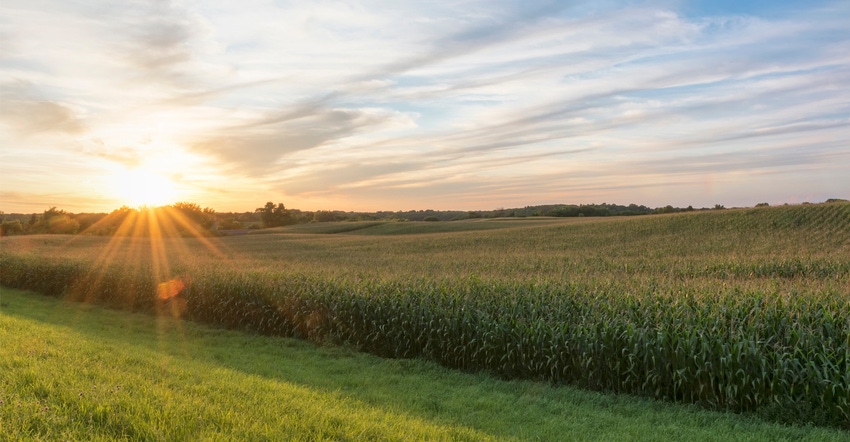March 4, 2022

The March calendar is filling with some interesting meetings across Iowa both live and virtual. Check out these events.
Women in Agriculture Conference From managing stress to preparing for farm succession, the upcoming Women in Agriculture Conference offers a solid day of information. Set for March 26 at the Knights of Columbus Hall in Washington, Iowa.
"Setting the Table for Success" is the theme for this year's conference, which is hosted by Iowa State University Extension and Outreach’s Washington County office, along with the Washington County Women in Agriculture Board.
The conference will feature four speakers: Scott Siepker, Iowa Nice Guy; Elaine Kub, grain market economist; Steve Bohr, with Farm Financial Strategies Inc., and Larry Tranel, dairy specialist with ISU Extension and Outreach.
Siepker kicks off the conference with humor, sharing his insights on how "Setting the Table for Success" starts with who should be around the table. Kub follows, expanding on how women can achieve success by examining the makeup and motivations of the grain market's most influential players. Bohr will discuss farm succession and transition planning and how to be successful.
The conference wraps up with Tranel, who will provide insights about managing stress.
Registration begins at 8:30 a.m. The conference will begin at 9 a.m. and conclude at 2:30 p.m., with networking and socializing until 3 p.m., when there will be a wine tasting. Attendees must be 21 or older for the wine tasting.
The registration fee is $25, or $15 for students. A light breakfast and lunch will be included. The early registration deadline is March 17. Late registrations and walk-in registrations will be accepted based on availability, and the registration cost jumps to $35, or $25 for students.
For more information or to register, you can register by calling the ISU Extension and Outreach Washington County office at 319-653-4811, or register online at tinyurl.com/WIAConf2022.
Virtual Field Day — flood mitigation
Iowa Learning Farms, in partnership with the Bee Branch Watershed Flood Mitigation Project, Iowa Nutrient Research Center and Conservation Learning Group, will present a virtual field day at 1 p.m. Central time March 10. The event will focus on the Bee Branch Watershed project, a multiphased effort to mitigate flash flooding, improve water quality, stimulate investment and enhance the quality of life.
Deron Muehring, city of Dubuque civil engineer, will lead the discussion about the watershed and the work being done. The project was awarded its first funding in 2013, through the Iowa Flood Mitigation Board. It received additional funding in 2016 from the U.S. Department of Housing and Urban Development grant process.
"We took what was a buried sewer system for over 100 years, and created a creek and floodplain. By taking a watershed approach, instead of just addressing the flood-prone areas, you get many additional benefits including improved water quality, wildlife habitat and overall improved well-being and peace of mind," Muehring says. "This project brings green space to our community, where homes have been built close together due to the topography. It also adds improved safety and access to outdoor space for those living in the area, including a newly constructed walking and biking trail."
There are two ways to take part. You can visit iowalearningfarms.org/page/events for the registration link. Or call 312-626-6799, with meeting ID 914 1198 4892.
Refine dairy-beef-cross management
Many dairy farms have turned to breeding a portion of their herd to beef bulls to produce calves for the beef market. There are a number of benefits, including improved management of replacement heifer inventories, and perhaps added market premiums over straight-bred baby bull calves.
As the practice has grown, new questions have arisen. Some dairy farms want to determine the practicality and profitability of retaining their dairy-beef-cross calves to market as feeders or fed cattle, versus moving them as baby calves.
The University of Wisconsin-Madison Extension will host a two-part webinar series focusing on practices that help optimize the value of dairy-beef-cross animals. “Optimizing the Value of Dairy Beef Cross Cattle, from Birth to Harvest” will be held March 8 and March 22, with one topic session from 11 a.m. to noon and a second session from 12:30 to 1:30 p.m. both days.
Each session will be a moderated panel format, with opportunities for participants to submit questions to panelists. There's no charge to participate in the webinar series, but registration is required. Register for both sessions at bit.ly/dairybeefxcattlewebinar.
On March 8, the first discussion will address selecting beef bulls to best complement dairy cows to consistently produce cattle with desirable carcass and feedlot performance traits. The second discussion (which will also be translated in Spanish) will address how the quality of postpartum and early-age calf care impact calves’ health, growth and performance for their entire lives. Presenters include Denise Schwab, beef specialist with Iowa State University Extension and Outreach; and several UW-Madison Extension educators. Wisconsin Beef Quality Assurance-certified participants attending the calf care session can receive one Wisconsin BQA continuing education credit.
On March 22, the first discussion will address feeding and managing dairy-beef-cross cattle from 400 pounds to finish. The second discussion will present information on marketing options for dairy beef cross cattle. Presenters include Jerad Jeborak, Michigan State University feedlot specialist; Dan Schaefer, UW-Madison professor emeritus in beef nutrition; Brenda Boetel, Extension and UW-River Falls livestock economist; and Bill Halfman, UW-Madison Extension agriculture agent. Wisconsin BQA certified participants attending the feeding and management session can receive one Wisconsin BQA continuing education credit.
Each session will be a moderated panel format, with opportunities for participants to submit questions to panelists. There's no charge to participate in the webinar series, but registration is required. Register for both sessions at bit.ly/dairybeefxcattlewebinar.
Source: Iowa State University. The source is solely responsible for the information provided and is wholly owned by the source. Informa Business Media and all its subsidiaries are not responsible for any of the content contained in this information asset.
You May Also Like




